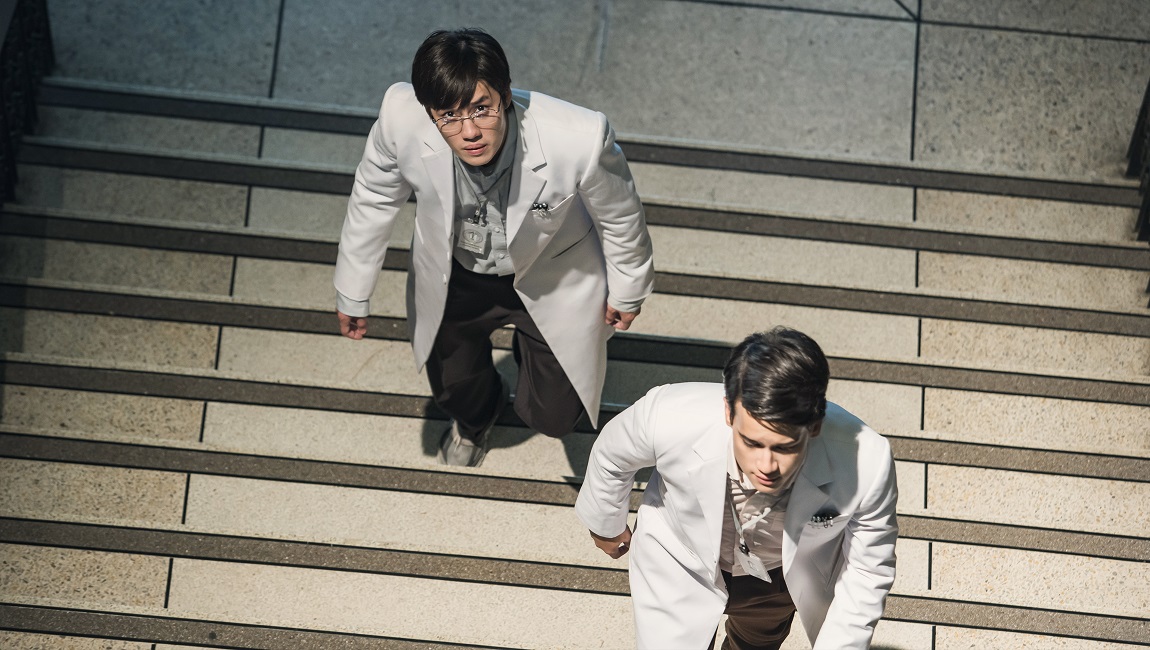Concrete Cowboy features a pair of solid performances and a sleek visual design, but suffers under the weight of its paint-by-numbers approach to narrative.
Set in the real-life world of Philadelphia’s Black cowboys, Ricky Staub’s Concrete Cowboy tells the story of Cole (Caleb McLaughlin), a delinquent teenager who is sent to live with his mostly-absent father, Harp (Idris Elba). Cole stumbles upon his father’s cowboy subculture, finding community, understanding, and purpose in the horses they ride and the stables they maintain. Given that generic description, it maybe shouldn’t surprise that what follows is a very typical coming-of-age story, falling headfirst into nearly every trope and creating the sort of paint-by-numbers narrative that Netflix seems more than happy to indulge, replete with perfectly, predictably-timed story beats that establish a familiar rhythm for viewers. In fairness, there is certainly value in seeing tropes repurposed in order to provide alternatives to Hollywood’s reliance on stories of Black trauma and tragedy, but Cole’s “wake-up call” arc and Harp’s tough-love parenting feel so cliché that Concrete Cowboy doesn’t ultimately seem to stray too far away from tried-and-tested formulas.
However, in adding flesh to a mediocre narrative skeleton, Concrete Cowboy does somewhat manage to overcome its plot weakness. The central performances from Elba and Stranger Things’ McLaughlin add a depth to the film that the script lacks, and particularly the latter’s balance in playing Cole as a child and as a new adult is uncanny. Coming-of-age stories are often so focused on the linear progress of their protagonists toward adulthood that childishness can get swept under the rug, but McLaughlin’s performance consistently inhabits both sides of the coin, with moments of affecting subtlety, such as when Cole begs his mother not to leave him with his father and slips, just once, from “mama” to “mommy.” McLaughlin refuses to let viewers perceive that this boy is anything close to a fully-formed adult, which, in a world that constantly and unfairly demands maturity and legal responsibility from Black children and adolescents, is a fine touch. The pairing of the two actors also proves more balanced than necessarily expected: when an actor who came to fame as a child has to hold their own against a titan like Idris Elba (especially as he also serves as a producer on the film), it’s easy to see the youngsters overshadowed, and it’s not like Elba doesn’t have opportunities to do so. With one particularly heartbreaking monologue and a camera that eagerly obliges Harp in his urban-cowboy aesthetic, it’s not hard to see how the film could have become Elba’s alone, but the younger actor admirably holds his own.
But that aesthetic does work as Concrete Cowboy’s other great strength — cinematographer Minka Farthing-Kohl seamlessly integrates a neo-Western atmosphere into the film’s city setting, creating a unique blend of rural and urban that evinced in few other places. And in that way, more than anything else, Concrete Cowboy is a visual delight, even if it’s hard to ignore that the script never rises to the heights of the compositions in exploring this strange, fascinating world of Philadelphia’s horsemen. But in spite of a pair of virtuosic central performances and its effective aesthetic design, Concrete Cowboy never really engages on a deeper level, and even while boasting such a cinema-ready backdrop, the film suffers for its unimaginative, generic script, particularly frustrating in the face of its stronger elements.
You can currently stream Ricky Staub’s Concrete Cowboy on Netflix.







